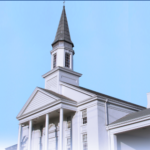 The Philadelphia Baptist Association (PBA) was founded in 1707 by five Baptist churches in Pennsylvania, southern New Jersey and Delaware to be a witness and transforming association for Jesus Christ.
The Philadelphia Baptist Association (PBA) was founded in 1707 by five Baptist churches in Pennsylvania, southern New Jersey and Delaware to be a witness and transforming association for Jesus Christ.
Since its founding, PBA has helped to shape the fabric of American life and values.
Eighteenth century:
-
As early as 1733, Philadelphia Baptists advocated for religious freedom for Roman Catholics and their right to establish houses of worship in the colony.
-
In 1770, PBA helped to found Rhode Island College, now known as Brown University.
-
PBA advocated for the abolition of slavery in 1789.
Nineteenth century:
-
PBA established the Philadelphia Society for missionaries to minster and work among the frontier settlers in 1804 .
-
The American Baptist Home Mission Society was founded in 1832.
-
From 1870 to 1890, PBA advocated for Indian education and equality.
- The Baptist Home (Deer Meadows Retirement Community) was formed in 1869.
- Baptist City Mission was established in 1879.
-
The Baptist Orphanage of Philadelphia (The Baptist Children’s Services) and the American Baptist Publication Society, were founded in 1883.
-
From 1882-1886 Grace Baptist Church (Grace Baptist Church of Blue Bell) was established and Temple University was founded.
Twentieth century:
-
PBA championed the principle of separation of church and state in the public school system in 1901.
-
Financially supported the formation of the Downington Industrial School in 1905.
-
Established The Baptist Settlement House in 1906.
-
In 1911, the New Settlement House and Marines Bethel Fund was founded.
-
From 1913 to 1915, PBA supported the Child Labor Act.
-
Beginning in 1920, the Philadelphia Baptist Mission Society began establishing Christian Centers.
-
The Good Shepherd Ministries was founded in 1947.
-
In the 1950s, PBA facilitated the purchase of liquidated church buildings by African-American congregations, partnered with the American Baptist Convention, and raised funds to plant new churches.
-
The Opportunities Industrialization Center was established in 1960 by Zion Baptist Church.
-
PBA’s efforts broadened to include prison ministries in 1978.
-
Partnership with the Baptist Convention of South Africa in 1989.
-
By 1991 , PBA and its member churches provided financial and volunteer support to ministries in Central America and social institutions in Philadelphia.
Today, PBA is an interracial and intercultural cosmopolitan body serving in a broad range of ministries. Because of the Baptist emphasis on religious freedom and the right of the individual believer to interpret the Bible according to his or her own conscience, PBA churches span a range of theological interpretations. They also comprise a wide range of ethnic backgrounds, social concerns, and ministries.
